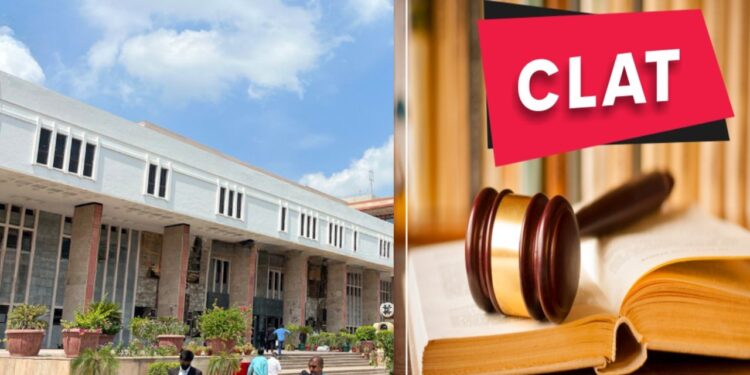The Delhi High Court on Wednesday observed that while courts are generally expected to adopt a hands-off approach in the conduct of exams like the Common Law Admission Test (CLAT), intervention becomes necessary when exam questions or answers are demonstrably incorrect, as it would otherwise lead to injustice.
Justice Jyoti Singh was hearing a petition filed by a 17-year-old law aspirant challenging errors in the final answer key for CLAT 2025 (UG), determining admissions to undergraduate law programs in National Law Universities (NLUs) across India. The petitioner argued that the errors could unfairly impact candidates’ ranking and admission prospects.
The NLU Consortium opposed the plea, maintaining that three expert committees had already reviewed objections to the answer key. The Consortium’s counsel contended that courts should not substitute their views for those of the experts. “The Court cannot become a super-examiner,” the counsel argued.
Justice Singh acknowledged the principle of judicial restraint in exam matters but cited Supreme Court rulings that permit courts to intervene when there are clear and palpable errors. “Yes, courts adopt a hands-off approach in judicial review. But when answers to questions are demonstrably wrong, not interfering would amount to injustice,” she observed.
The judge further examined a disputed question and noted that the correct answer, “Sohan,” was missing from the options. Instead, the exam committee had marked “data inadequate” as the correct answer. “This is not about overstepping. I tried solving it, and it took me 30 seconds to determine the correct answer: ‘ Sohan.’ If not ‘Sohan,’ the option should have been ‘none of the above.’ It’s not rocket science,” Justice Singh remarked.
The Consortium’s counsel countered by arguing that exams sometimes require candidates to select the answer closest to the correct one when no perfect option is provided. However, the Court rejected this stance, emphasizing that candidates cannot be expected to choose the “closest” answer if all options are incorrect. “If all the answers are wrong, the candidate must get the benefit,” the judge asserted.
The Consortium also expressed concern that any interference by the Court could disrupt the entire CLAT admission process, which affects students across the country. The counsel further argued that the petitioner was not contesting their eligibility for admission but was seeking to improve their rank.
Justice Singh clarified that the Court focused on fairness and addressing evident errors rather than interfering in the broader admission process without cause. She added that such issues, if left unresolved, could undermine the integrity of competitive exams.
The hearing will continue on Thursday at 2:30 PM. The petition, filed by advocate Arjeet Gaur, has brought to light broader concerns about the accountability and transparency of national-level examinations.

















